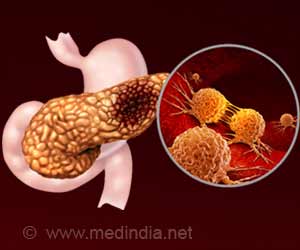Massachusetts General Hospital (MGH) researchers have zeroed in on ovarian cancer stem cells that make the management of tumors all the more complex.
Massachusetts General Hospital (MGH) researchers have zeroed in on ovarian cancer stem cells that make the management of tumors all the more complex. Getting into the nuances of the stem like traits of cells will assist in developing better ways to combat ovarian cancer.
"We feel these stem-like cancer cells may be resistant to traditional chemotherapy and could be responsible for the ultimately fatal drug-resistant recurrence that is characteristic of ovarian cancer," says Paul Szotek, MD, of the MGH Pediatric Surgical Research Laboratories, first author of the PNAS report. "We believe this likely is the first time stem-like cells have been found in models of ovarian cancer and in cells associated with human ovarian cancer."Several recent studies have identified tiny populations of tumor cells that appear to act like stem cells, driving the tumor's ability to grow and spread. If some of these specialized cells escaped destruction by chemotherapy or radiation, the tumor would be able to recur quickly, often in a form resistant to chemotherapy. Similar cancer stem cells have been previously identified in leukemia and breast cancer and in cell lines of central nervous system and gastrointestinal tumors.
Standard treatment for ovarian cancer – surgical removal of all involved tissues followed by chemotherapy – usually appears successful, but treatment-resistant tumors recur in the vast majority of patients, leading to a five-year survival rate of less than 30 percent. Those factors and other observations suggested that cancer stem cells may also be found with ovarian tumors, leading to the current study.
The MGH researchers first examined two mouse ovarian cancer cell lines and identified cells with characteristics of the cancer stem cells found with other tumors. They then observed a small percentage of stem-like cells in human ovarian cancer lines and in cells taken from ascites fluid that had accumulated within the abdomen of several ovarian cancer patients. When mouse ovarian tumor stem-like cells were injected under the skin of mice, they led to the formation of new tumors much faster than did injections of regular tumor cells.
Although the potential ovarian cancer stem cells were less responsive than regular tumor cells to in vitro treatment with the chemotherapy drug doxorubicin, the stem-like cells remained sensitive to repeated treatment with Mullerian Inhibiting Substance (MIS). This protein, important in the normal development of sexual organs, has been studied for its potential to treat several reproductive tumors by Patricia Donahoe, MD, director of the MGH Pediatric Surgical Research Laboratories and senior author of the PNAS study, and David MacLaughlin, PhD, associate director of the labs and a study co-author.
"We feel that non-traditional, possibly innovative approaches will be required to eradicate these stem-like cancer cells and ultimately cure ovarian cancer. With its potential to maintain the ability to inhibit the proliferation of these cells, MIS may play a role in these new therapeutic approaches," Donahoe says. "We intend to keep searching for stem-like cells in patient tumor samples and to study their responsiveness to both chemotherapeutic agents and to novel agents specifically targeted to stem cell as individualized therapy of the future." Donahoe is the Marshall K. Bartlett Professor of Surgery at Harvard Medical School.
Advertisement











